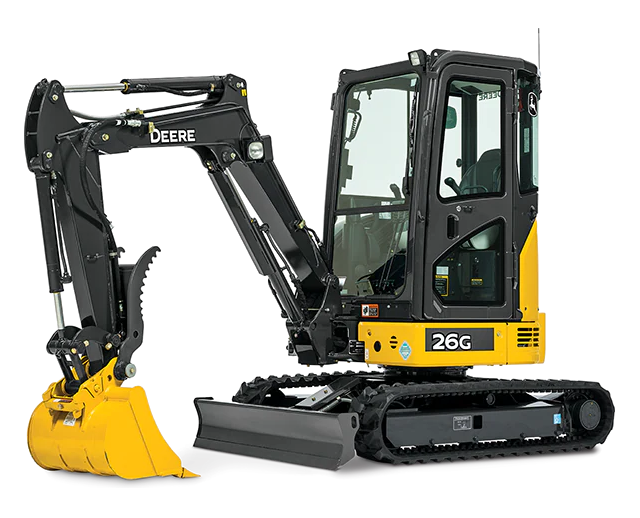Construction Equipment Rentals: Sturdy Machinery for Your Jobs
Construction Equipment Rentals: Sturdy Machinery for Your Jobs
Blog Article
Optimize Your Budget by Understanding the Expenses Connected With Building And Construction Devices Rentals
Recognizing the full extent of prices connected with construction tools rentals is critical for maximizing your budget. While the preliminary rental fee might seem simple, various additional costs-- such as transportation, gas additional charges, and upkeep-- can rapidly gather, affecting your monetary preparation. Being conscious of different fees and the details of rental arrangements can assist prevent unexpected monetary burdens. What strategies can be employed to properly take care of these expenses and guarantee an extra efficient rental experience?
Review of Rental Expenses
When considering building tools leasings, understanding the connected costs is paramount for reliable budgeting and job preparation. Rental expenses can differ significantly based upon numerous factors, consisting of equipment type, period of leasing, and location. The first rental fee typically reflects the tools's market need and its associated operational capabilities, influencing the total cost.
Along with the base rental price, ancillary expenses may develop, such as transport fees, fuel surcharges, and maintenance charges. It is important to represent these additional expenses to precisely evaluate the complete cost of leasing equipment. Moreover, the rental duration can impact prices; longer leasings may qualify for affordable rates, while temporary leasings could sustain greater day-to-day fees.

Failure of Rental Prices
An extensive understanding of rental prices is essential for contractors and project supervisors intending to enhance their budgets. Rental rates for building and construction tools commonly contain several elements, including base prices, time-based fees, and usage costs.
Base prices are the core costs related to the leasing of the tools, commonly identified by the kind and dimension of the equipment. These prices can vary dramatically, affected by elements such as tools need, availability, and regional market patterns. Time-based costs, which might be daily, weekly, or monthly, serve to accommodate various project timelines and rental periods.
In addition, rental rates may consist of use fees, which are suitable when tools is utilized beyond a specified threshold, making certain that the rental firm can account for deterioration. Seasonal need fluctuations can additionally affect rental prices, with peak building periods normally commanding higher rates.
Additionally, understanding the rental business's plans concerning upkeep and insurance can provide additional insight right into the total cost structure. By assessing these components, specialists can make educated decisions, making sure the selection of rental tools lines up with both job needs and budget restrictions.
Extra Costs to Consider
Understanding the complexities of extra charges is important for specialists to manage their overall leasing costs properly. Past the standard rental rates, different supplemental costs can substantially impact the overall expense of equipment service. These costs typically include shipment and pickup charges, which can vary based on range and logistics involved in moving the equipment to and from the work website.
Furthermore, some rental business may impose gas additional charges if the devices is returned with less fuel than when leased. It is additionally necessary to be mindful of prospective cleaning costs, especially for specialized devices that needs extensive maintenance after usage.

Thoroughly reviewing the rental arrangement and clarifying these added charges upfront can help contractors guarantee and stay clear of unanticipated expenses that budget plans remain intact throughout the project lifecycle.
Upkeep and Repair Work Expenditures
Normal repair and about his maintenance expenditures are commonly neglected factors that can substantially affect the general cost of building tools leasings. When leasing tools, it is important to take into consideration not only the rental charges yet also the prospective costs related to maintaining the equipment in optimal operating condition.
Several rental business consist of basic upkeep as part of the rental contract; nevertheless, more unforeseen break downs or substantial fixings can lead to extra expenditures. It's necessary to examine the rental agreement carefully to comprehend what maintenance services are covered and what duties drop on the renter.
In addition, equipment that is not properly maintained can lead to ineffectiveness on the task site, possibly enhancing and causing hold-ups task expenses. To mitigate these dangers, it is a good idea to carry out regular assessments and preserve open communication with the rental supplier concerning any type of concerns that occur throughout use.
Insurance Policy and Responsibility Costs
Insurance policy and liability expenses are crucial parts that can substantially impact the total expenditure of building and construction equipment rentals (construction equipment rentals). These prices ensure that both the rental business and the customer are protected from possible economic losses developing from accidents, damages, or theft throughout the rental period

In addition, customers must know any deductibles or exemptions in the insurance coverage, as these can impact possible out-of-pocket costs. Comprehending the terms of any insurance policy coverage is crucial to prevent unexpected expenses. Inevitably, budgeting for insurance coverage and responsibility expenses can assist make certain a smoother rental experience and safeguard against economic threats connected with construction jobs.
Verdict
In verdict, an extensive understanding of the prices associated with building and construction equipment rentals is vital for reliable budget monitoring. Inevitably, notified decision-making relating to equipment leasings contributes to the overall success of construction undertakings.
Rental prices can differ significantly based on several aspects, including devices type, period of service, and location (mini excavator rental). The rental period can impact pricing; longer services might certify for reduced rates, while short-term rentals might incur higher everyday charges
By performing extensive research study and involving with trusted rental business, service providers can successfully navigate the intricacies of rental prices, ultimately optimizing their economic resources.
Past the common rental prices, various supplementary fees can significantly impact the total price of equipment service. Rental companies often give liability insurance that covers injuries to 3rd events or damages to property, while devices damage insurance can cover the expense of repair work or substitute if the leased equipment is damaged.
Report this page